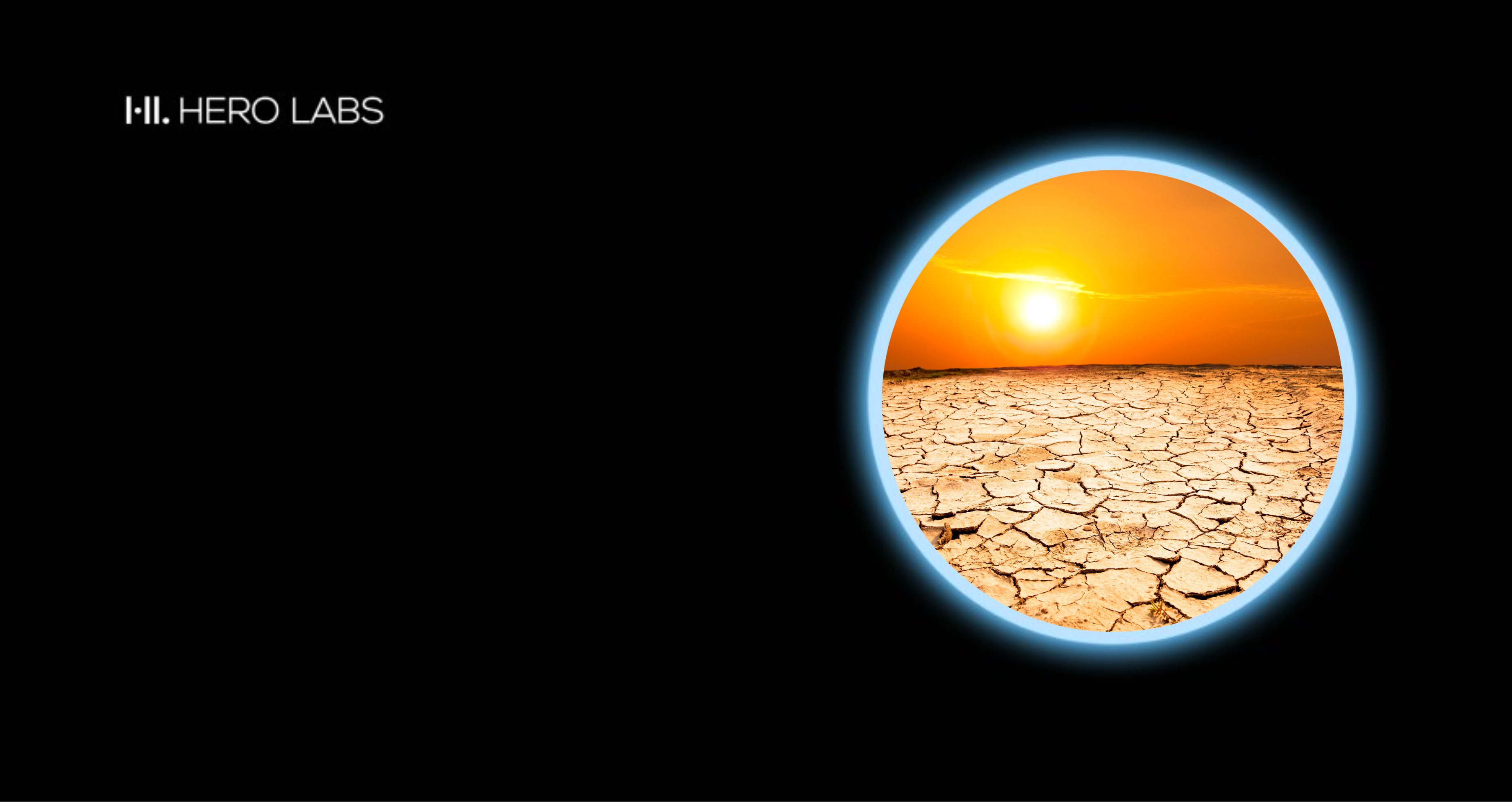
As a changeable spring season comes to an end with a heady period of warm, dry and settled weather starting, it feels like we might be all set for summer and those mild evenings, barbecues and beach days that we all dreamt of during the winter months.
However, the question on many people’s lips is whether we might end up with another heatwave like 2022 – and with this, a potential drought. While there is currently no official heatwave forecast for the UK, temperatures have reached upwards of 30C recorded in some areas of the UK. These fine and settled – and sometimes very warm – days with long periods of sunshine have already caused series of concerning events that highlight the growing importance of conserving water.
Current water challenges
In a drought, water levels in rivers, lakes, and reservoirs drop, making it difficult to meet the demand for water. This can lead to water shortages for households, businesses, and agriculture.
Earlier this month, UK schools were closing due to water shortages and thousands of homes were left without water. These unfortunate situations serve as a wake-up call for the urgent need to address water conservation. The prospect of similar situations throughout the coming summer underlines the vulnerability of water supplies and the necessity of taking preventive measures.
In addition, a number of countries around the world have already experienced record-breaking temperatures and extreme weather conditions. As climate change progresses, such events become more frequent, leading to an increased strain on water resources – alarming reminders of the looming threat of drought and water scarcity.
There is also significant economic impact caused by water shortages. Earlier this year, water bills in the UK were increased, reflecting the growing costs associated with water supply and infrastructure maintenance. Conserving water not only benefits the environment but also helps reduce financial burdens on households and businesses. As the effects of climate change intensify, it is crucial that everyone recognises their role in using water responsibly and acts accordingly. Take a look at our blog on how individuals and nations as a whole can save water on a daily basis.
Record rainfall and drought paradox
This past March was England’s wettest in 40 years. Despite the record rainfall in March, a hosepipe ban was extended across more areas of Cornwall and parts of Devon in April to ‘break the cycle of drought’ after reservoir levels fell to their lowest recorded level last year. Just this month, another of the UK’s water companies started restricting the use of hosepipes in Kent and Sussex and urging households to conserve water.
This seemingly contradictory situation can be attributed to the specific distribution of rainfall , the inability of water systems to effectively capture, store and distribute it and water companies’ inadequate drought planning.
Drought: The Next Pandemic?
The potential severity of drought and water scarcity obviously cannot be overstated. An estimated 55 million people globally are affected by droughts every year, and they are the most serious hazard to livestock and crops in nearly every part of the world. Experts therefore warn that drought may become the next global crisis, comparable to a pandemic.
Droughts affect more people than any other slow onset disaster and will determine the course of human development in the coming years as the climate emergency worsens. Globally, this threat is being taken very seriously. In June 2021, Mami Mizutori, the UN secretary general’s special representative for disaster risk reduction, said: “Drought is on the verge of becoming the next pandemic, and there is no vaccine to cure it.”
A report by the World Economic Forum earlier in 2023 warned that six of the ten most severe risks to human health are environmental, particularly as the world’s population grows.
Then in May, a ten-year strategy document published by the UKHSA sets out how the Government will step up its planning, resources and response to the effects of a rise in global temperatures on human health.
At the end of the day, the world isn’t running out of water – people are. The situation is serious, and we all need to do our part to save water.
Hosepipe bans and water shortages could be a yearly reality here in the UK unless long-term water management strategies that address water wastage, excess rainfall and drought periods are put in place. The waste that happens in our water systems – the pollution of our rivers, the leakages in the underground pipes, the building codes that allow developers to build water- inefficient houses – all that happens before we even turn a tap on.
There is a lot we can do as individuals, but those things almost all boil down to water-efficient appliances, detecting leaks, rainwater capture and greywater recycling, all of which could and should be integral to water company practices and building regulations.
However until water and building companies make these vital changes, we all need to work that little bit harder to conserve water in our daily lives. Let us collectively recognise the significance of water conservation and take proactive steps to ensure a sustainable future for all.